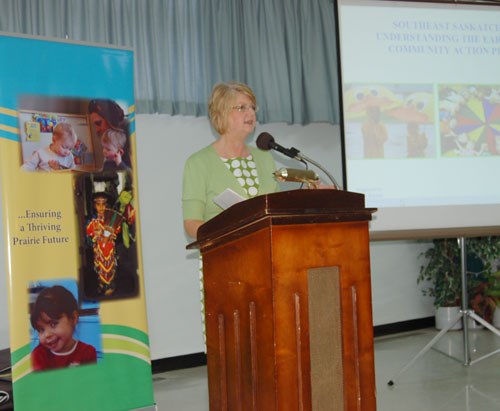The results of a three-year study were presented in Weyburn on May 27. The Prairie Children...Prairie Futures Understanding the Early Years study determined children's readiness to learn in southeast Saskatchewan.The study involved 1,889 Kindergarten students from 115 schools in the southeast region. Also, 23 First Nation communities took part in the study."The study showed that our children are socially well-adjusted and doing well in most areas of social development," said Ruth Barker, community coordinator for Prairie Children...Prairie Futures Understanding the Early Years (UEY).Barker said that the exception was in the area of pro-social behaviour, and that 33.8 percent of children did not exhibit helping behaviour."If a child was hurt or crying they wouldn't go help," said Barker. "That concerns me because these are the children that are going to be caring for our aging population."Another area of concern was language and cognitive development. The study found that 22.3 percent of children could not count to 20 before starting Kindergarten.Barker said that it is a reasonable expectation that children can recognize 10 letters in the alphabet before entering school; however, 25 percent of the children studied could not.The study also evaluated parenting styles, community and socioeconomic factors.The study found that 49 percent of parents are practising appropriate parenting skills, while 16.9 percent are practising a neglectful style of parenting.Only seven percent of parents in the southeast have access to licensed child care."Parents don't have choices for child care," said Barker. "Ratios are 10 to one for children and child care providers, we need smaller ratios."About 70 percent of families studied were from middle class and upper income families.Barker said the next step is to share the information from the study with the region. UEY will be holding focus groups in the fall with community groups involved with all areas of child development, in order to develop a Community Action Plan to address those areas needing improvement."We don't want to tell the community what to do," said Barker. "We want them to take the information and use it to develop their own strategies."Barker said that UEY's recommendations for the southeast would be to develop local literacy initiatives, provide support for children with multiple challenges and promote events that support child development.




